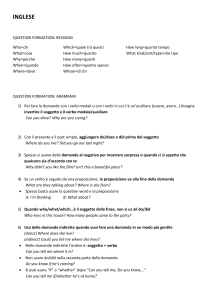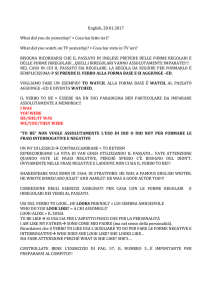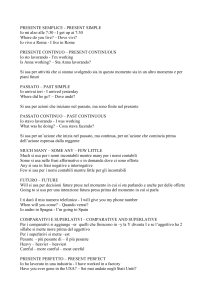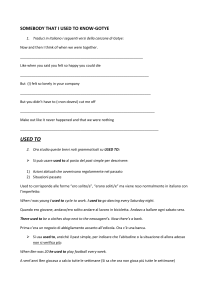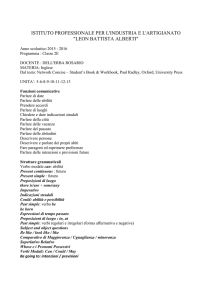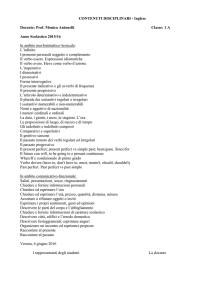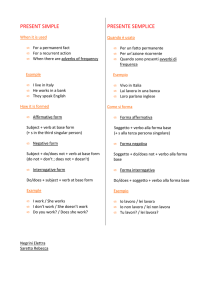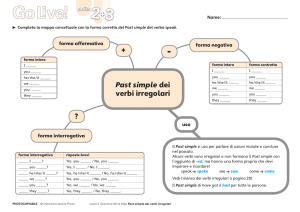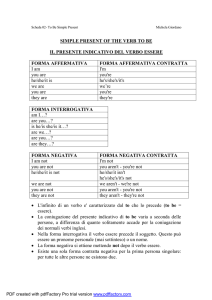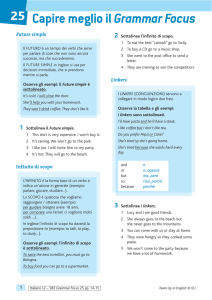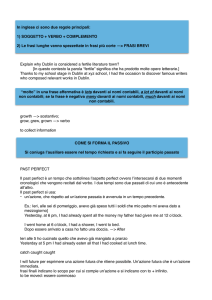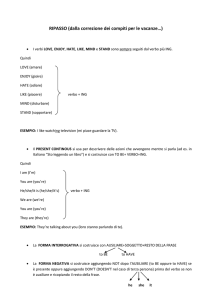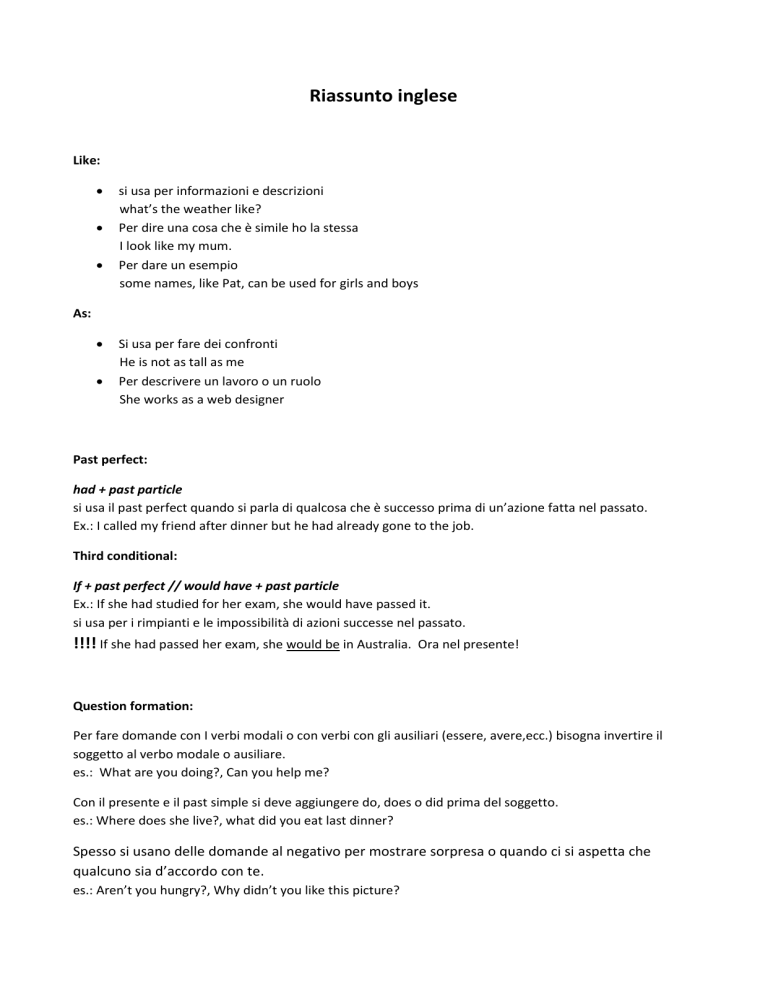
Riassunto inglese
Like:
si usa per informazioni e descrizioni
what’s the weather like?
Per dire una cosa che è simile ho la stessa
I look like my mum.
Per dare un esempio
some names, like Pat, can be used for girls and boys
As:
Si usa per fare dei confronti
He is not as tall as me
Per descrivere un lavoro o un ruolo
She works as a web designer
Past perfect:
had + past particle
si usa il past perfect quando si parla di qualcosa che è successo prima di un’azione fatta nel passato.
Ex.: I called my friend after dinner but he had already gone to the job.
Third conditional:
If + past perfect // would have + past particle
Ex.: If she had studied for her exam, she would have passed it.
si usa per i rimpianti e le impossibilità di azioni successe nel passato.
!!!! If she had passed her exam, she would be in Australia.
Ora nel presente!
Question formation:
Per fare domande con I verbi modali o con verbi con gli ausiliari (essere, avere,ecc.) bisogna invertire il
soggetto al verbo modale o ausiliare.
es.: What are you doing?, Can you help me?
Con il presente e il past simple si deve aggiungere do, does o did prima del soggetto.
es.: Where does she live?, what did you eat last dinner?
Spesso si usano delle domande al negativo per mostrare sorpresa o quando ci si aspetta che
qualcuno sia d’accordo con te.
es.: Aren’t you hungry?, Why didn’t you like this picture?
Se il verbo è seguito da una preposizione, essa va messa alla fine della domanda.
es.: What are you talking about?
spesso si usa solo la question word e la preposizione
A: I’m thinking.
B: What about?
Quando la question word è il soggetto della domanta non si usa do, did,ecc.
es.: Who wrote this?
Quando si vuole fare una domanda in modo più intelligente si usa la domanda indiretta
(diretta) Where does she live?
(indiretta) Could you tell me where she lives?
Nelle domande indirette va messo prima il soggetto poi il verbo
es.: Can you tell me where it is?
Nella seconda parte di domanda non si usa do o did
Si può usare if o whether dopo la prima parte
es.: Can you tell me if / whether he is at home?
Question word:
Who=chi
What=cosa
Why=perché
When=quando
Where=dove
Which=quale tra questi
How much=quanto
How many=quanti
How often=quanto spesso
Whose=di chi
How long=quanto tempo
What kind=che tipo
Vocabulary:
Application = candidatura
apply for = candidarsi
advertise = pubblicitare
laptop = notebook
to fall head over heels in love = fall very much in love
pal = friends
cosy = accogliente
tycoon = riccone
rapacious = avido
handles = nick name
to be at odds = non essere d’accordo
cheerfully = allegramente
supply = riserva, fornitura
supply, -ied = fornire
supplier = fornitore
gobble up = acquistare tante cose x monopolio
as soon as + pres. Simple = conditionals
aim = scopo
be in charge of = essere incaricato di
both = entrambi
main = principale
quotation = citazione
quote = citare
to be aware of = essere coscenti di
awareness = consapevolezza
take into account = prendere in consideraz.
swap = cambiare
terrified = terrificato
terror = terrore
treasure = prezioso
trust = fidarsi
trustworthy = fidato
grave = bomba
graveyard = cimitery = cimitero
coffin = bara
hearse = carro funebre
undertaker = becchino
bury = seppellire

